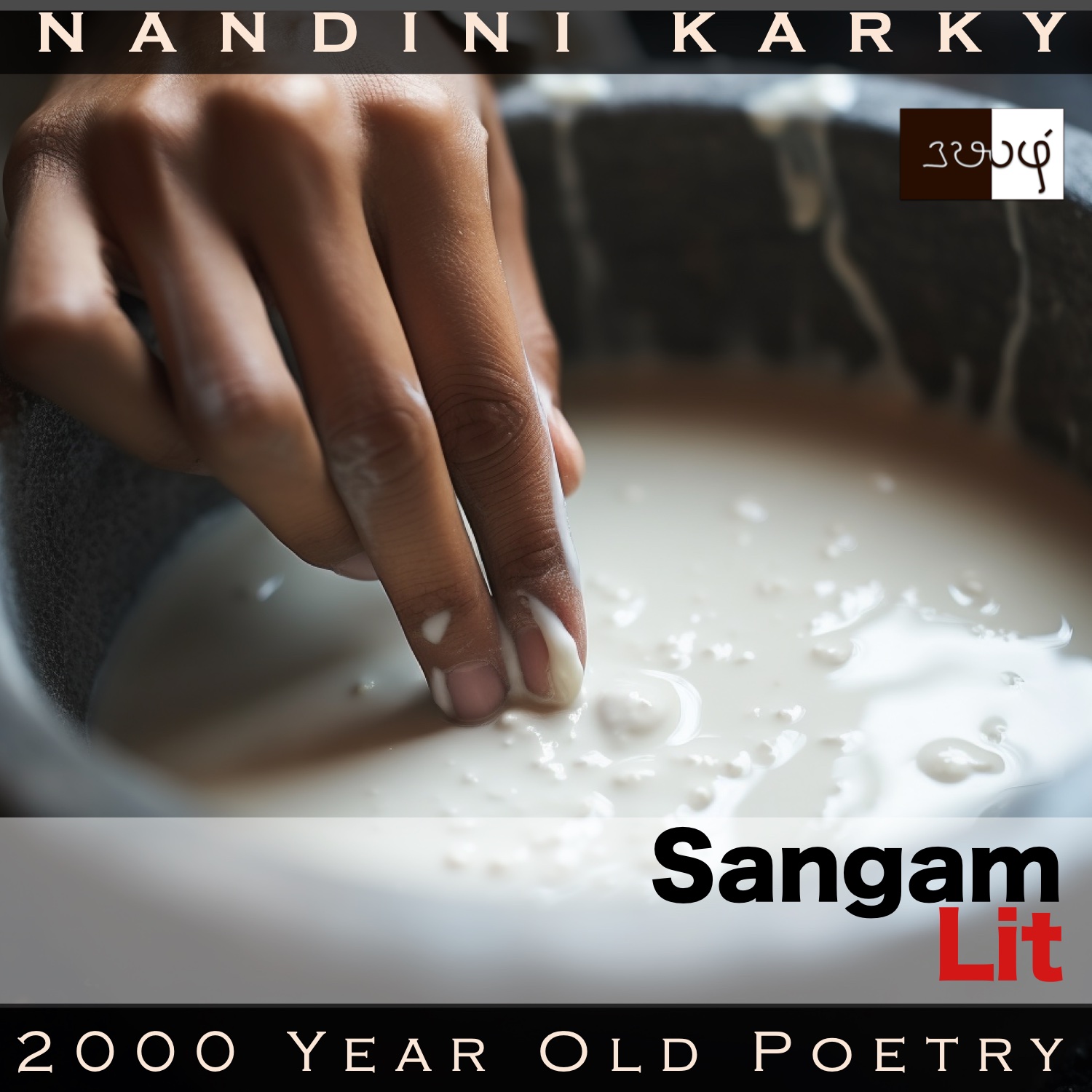Podcast: Play in new window | Download
Subscribe: Apple Podcasts | Spotify | Amazon Music | Android | iHeartRadio | TuneIn | RSS | More
In this episode, we perceive the strength of a warrior in the battlefield, as depicted in Sangam Literary work, Puranaanooru 276, penned by the poet Madurai Boothan Ilanaakanaar. The verse is situated in the category of ‘Thumbai Thinai’ or ‘Battle of two kings’ and sketches a dashing personality.

நறு விரை துறந்த நரை வெண் கூந்தல்,
இரங் காழ் அன்ன திரங்கு கண் வறு முலை,
செம் முது பெண்டின் காதலம் சிறாஅன்,
மடப் பால் ஆய்மகள் வள் உகிர்த் தெறித்த
குடப் பால் சில் உறை போல,
படைக்கு நோய் எல்லாம் தான் ஆயினனே.
A tiny song full of style. The poet’s words can be translated as follows:
“Having greying white hair that has shunned fragrant substances and bearing shrivelled breasts with nipples, akin to silk cotton seeds, appears this noble, old woman. Her loving young son, akin to the few drops of curd, splashed by the sharp nail of the young herder girl, has become the sole affliction for the enemy army entire!”
Let’s delve deeper into the verse. The poet starts by describing not a young and vital man in the battlefield but contrastingly his old mother, who is said to have greying hair and wrinkled breasts. She is honoured as a woman from a noble clan and that this young man, the protagonist of this tiny poem, was her much adored son. Leaving the battlefield where this young man is no doubt to be found, the poet travels in the contrary direction to a herder’s home and here we see a young girl scattering a few drops of curd into clear and still milk. Just like how those few drops curdle and change the texture of that huge pot of milk, this young man too seems to be confusing and scattering the entire army of the enemy, the poet concludes.
Without too many words, with a single sharp image, the poet brings before our eyes, the havoc the young man is creating in the battlefield and the distress he’s causing to his enemies. A verse that goes on to show that Sangam poets never shirked away from connections saying that’s too far-fetched. Instead they always see the connectedness of facets, be it in the action-filled battlefield or a haven of calm such as a household. One more thing that fascinates me is that without having heard anything about ‘fermentation’, ‘bacterial cultures’, ‘Louis Pasteur’, ‘lactobacillus’ and so on, the poet is able to feel the awe in the creation of this healing food, the ‘curd’ or ‘yoghurt’, two thousand years ago. Makes me think that poetry is like that wise old mother of that young and dashing son called science in the field of this world’s knowledge!




Share your thoughts...